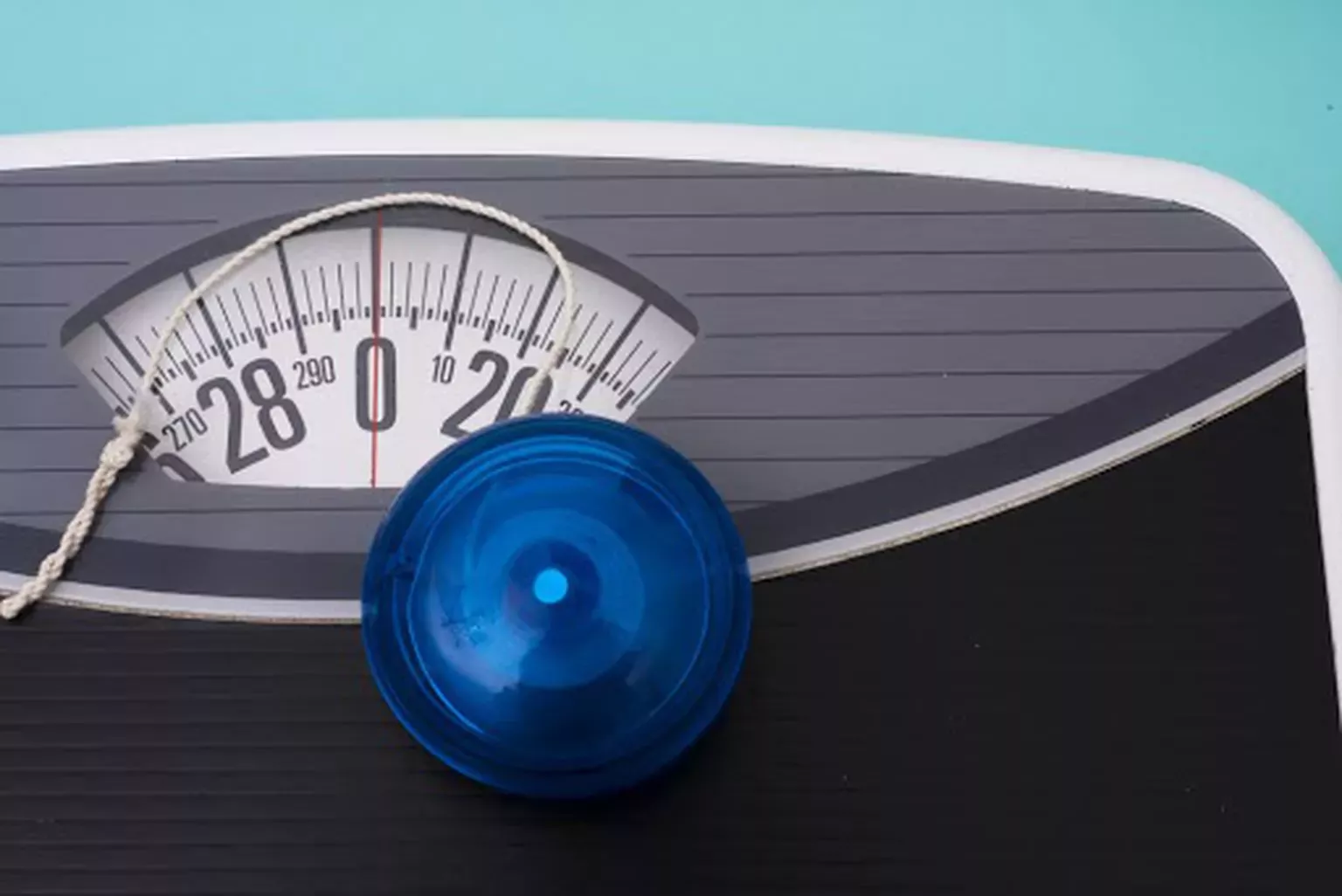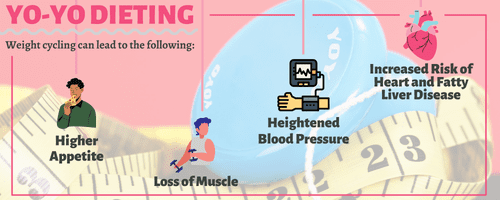Yo-yo dieting, sometimes referred to as “weight cycling,” describes losing weight, regaining it, and then dieting again. While this cycle occurs to a certain degree at different points of our lives..
Yo-yo dieting, sometimes referred to as “weight cycling,” describes losing weight, regaining it, and then dieting again. While this cycle occurs to a certain degree at different points of our lives, yo-yo dieting alludes to the constant and frequent activity of dropping and gaining weight. Suffice it to say, those who find themselves consistently yo-yo dieting over the years often feel frustrated, burnt-out, discouraged, and maybe even confused. After all, their goals include steady weight loss — not losing the same weight over and over again.
The Drawbacks Of Yo-Yo Dieting
While yo-yo dieting can feel like you’re constantly up against a brick wall, you may not realize that the recursive nature in and of itself can have negative effects on your overall health.
Increased Appetite
Fat loss leads to decreased levels of leptin, a hormone that usually helps you feel full. As you drop weight, leptin levels dip while your appetite increases, as your body tries to resupply depleted energy stores. As a result, yo-yo dieters may gain back even more weight than they lost — kicking off another yo-yo cycle.
Muscle Loss
During weight-loss diets, the body loses muscle mass in addition to body fat. Since fat is more easily regained than muscle after weight loss, it can ultimately lead to more muscle loss. However, these effects can be reduced with exercise and high-protein sources.
Climb In Blood Pressure
Any weight gain, including yo-yo weight gain after dieting, is linked to increased blood pressure. Moreover, yo-yo dieting could stunt weight loss’s effect on blood pressure in the future. In fact, a study of 66 adults found the individuals with a history of yo-yo dieting had less improvement in blood pressure during weight loss.
Greater Risk Of Heart Disease
Weight cycling is associated with coronary artery disease — a condition in which arteries that supply the heart narrow. Weight gain, even more so than being overweight, increases the risk of heart disease. According to a study of nearly 1,000 adults, the risk depends on the size of the swing in weight; the more lost and regained during the cycle, the greater the risk.
How Do I Stop Yo-Yo Dieting?
It’s clear that weight cycling isn’t only a maddening sequence of events — it can put your health at risk. However, with the right information, mindset, and dedication, anyone can break free of yo-yo dieting and achieve their weight loss goals — once and for all! For more information about our weight loss program or Psychology of Eating classes, contact us today.





